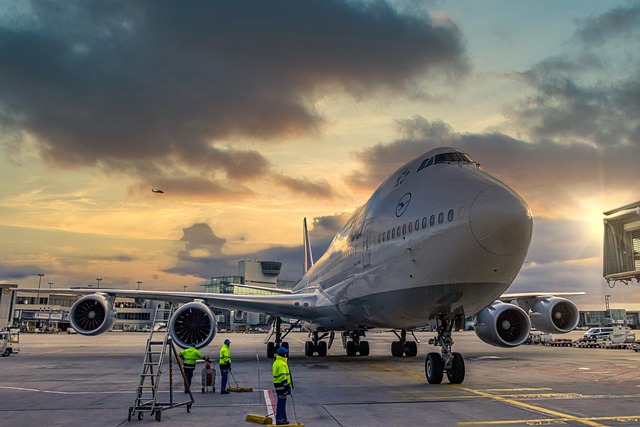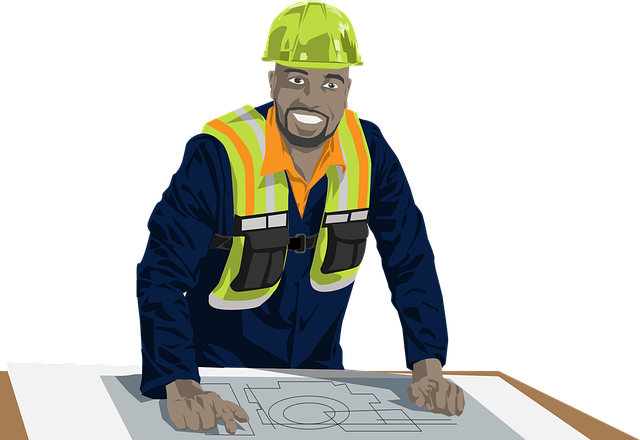To become an aerospace engineer, start by evaluating your genuine interest in aviation and space travel, strengthening math and science skills, learning programming languages, understanding fundamental aerospace concepts, engaging in hands-on projects, developing effective study habits, researching university programs, and gaining practical experience. This preparation will lay a strong foundation for the rigorous academic journey ahead.
Aspiring aerospace engineers, this is your launchpad! Transitioning from high school to university-level aerospace engineering requires more than just a passion for the cosmos; it demands a strategic preparation plan. This guide unveils 10 essential tips to equip you with the skills and knowledge needed for success. From cultivating a strong mathematical foundation to gaining hands-on experience, each step builds a solid base for your aerospace journey. Let’s ignite your path to becoming a future space pioneer!
- Assess Your Interest & Motivation
- Strengthen Mathematics and Science Skills
- Build Computer Programming Proficiency
- Familiarize Yourself with Aerospace Concepts
- Gain Practical Experience Through Projects
- Develop Effective Study Habits
- Explore University Programs & Resources
Assess Your Interest & Motivation

Before diving into the rigorous world of aerospace engineering, it’s crucial to assess your genuine interest and motivation for the field. Aerospace engineering is a demanding discipline that requires a strong fascination with aviation, space travel, and the technical intricacies of crafting innovative solutions for flight. Reflect on why you aspire to study aerospace; is it the thrill of exploring new frontiers, the challenge of designing cutting-edge aircraft or spacecraft, or the potential to shape the future of transportation? Understanding your intrinsic drive will fuel your commitment during the intense academic journey ahead.
Genuine enthusiasm and motivation are key to navigating the complex curriculum and staying focused amidst the many distractions that can arise during university studies. Take time to research the field, engage with current aerospace engineers, and perhaps even participate in relevant projects or internships to gain hands-on experience. This will help solidify your decision and ensure you’re prepared for the exciting yet demanding path ahead.
Strengthen Mathematics and Science Skills

Strengthening your mathematical and scientific skills is paramount when preparing for a degree in Aerospace Engineering. These subjects form the backbone of your future studies, so building a solid foundation is crucial. Focus on mastering key concepts in calculus, physics, and chemistry, as these will be extensively used throughout your aerospace engineering courses. Challenge yourself with advanced placement (AP) or International Baccalaureate (IB) courses if available in high school, as they can provide valuable college-level preparation.
Complementing your academic studies with additional resources like textbooks, online tutorials, and practice problems can significantly enhance your understanding. Many reputable organizations offer free educational materials and interactive simulations tailored for aspiring aerospace engineers. Engaging with these resources will not only strengthen your skills but also familiarize you with the types of challenges you’ll encounter in college.
Build Computer Programming Proficiency

In today’s digital age, computer programming is an invaluable skill for aspiring aerospace engineers. Many aspects of modern aircraft and spacecraft design, simulation, and control rely heavily on coding. Proficiency in programming languages such as MATLAB, Python, or C++ will enable students to analyze data, create simulations, and automate tasks, all of which are essential skills in the field. High school students can start building this foundation by taking computer science courses if available, or through online tutorials and projects.
Practice is key to mastering programming. Students should aim to work on small projects that interest them, gradually increasing complexity as their skills improve. Online communities and forums are also great resources for learning, troubleshooting, and staying motivated. Building a strong foundation in programming early will not only prepare students for university-level courses but also give them a competitive edge when applying for aerospace engineering programs.
Familiarize Yourself with Aerospace Concepts

Before diving into complex engineering courses, take time to familiarize yourself with fundamental aerospace concepts. Start by exploring basic physics principles like Newton’s laws, aerodynamics, and the behavior of gases. Understand key terms such as lift, drag, thrust, and gravity, which form the backbone of aircraft design and flight operations.
Read introductory books or online resources that offer concise explanations and examples. Engage with online forums or communities where enthusiasts discuss various aspects of aerospace technology. This preliminary understanding will not only make your formal studies easier but also help you identify areas that pique your interest, guiding your specialization choices in the future.
Gain Practical Experience Through Projects

Engaging in hands-on projects is an invaluable way to prepare for a degree in aerospace engineering. High school students should look for opportunities to build and test small-scale aircraft, rockets, or even simple machines that incorporate aerospace principles. These projects allow you to apply theoretical knowledge in practical settings, fostering problem-solving skills and a deeper understanding of the subject matter.
Beyond school projects, consider joining science fairs, engineering competitions, or local aerospace clubs where you can collaborate with peers, learn from mentors, and explore real-world engineering challenges. Such experiences not only enhance your technical abilities but also demonstrate your passion for aerospace to university admissions officers.
Develop Effective Study Habits

Developing effective study habits is crucial for any academic pursuit, and aerospace engineering is no exception. It involves mastering complex concepts, understanding intricate calculations, and staying updated with rapid technological advancements. To prepare for this challenging field, students should cultivate a structured approach to learning. Start by creating a consistent study routine, setting realistic goals, and breaking down tasks into manageable chunks. This ensures you cover all subjects thoroughly without feeling overwhelmed.
Additionally, developing good time management skills is essential. Prioritize your studies, allocate dedicated time for each subject, and avoid procrastination. Regularly review notes, solve practice problems, and engage in self-testing to reinforce your understanding. These habits will not only enhance your knowledge but also build mental resilience, which is vital for tackling the demanding coursework ahead.
Explore University Programs & Resources

Before committing to an aerospace engineering program, it’s crucial to explore what universities offer and how their resources align with your interests and goals. Start by researching various university programs and their specific strengths. Look for institutions that have well-regarded aerospace departments with experienced faculty, state-of-the-art facilities, and a range of specialized courses. Check out their curriculum, focusing on core topics like mechanics, aerodynamics, spacecraft design, and propulsion systems.
Also, consider the resources available beyond classroom learning. Look for universities that offer internship programs, industry partnerships, research opportunities, or student clubs dedicated to aerospace engineering. These experiences can provide valuable hands-on skills, networking possibilities, and a better understanding of the field—all of which will prepare you for the challenges and rewards of an aerospace engineering career.
Preparing for a degree in aerospace engineering requires a combination of passion, knowledge, and practical skills. By assessing your interest, strengthening math and science foundations, building computer programming proficiency, familiarizing yourself with aerospace concepts, gaining hands-on experience through projects, developing effective study habits, and exploring university resources, you’ll be well on your way to a successful career in this dynamic field. Remember, the journey begins long before university, so start building your foundation today.
